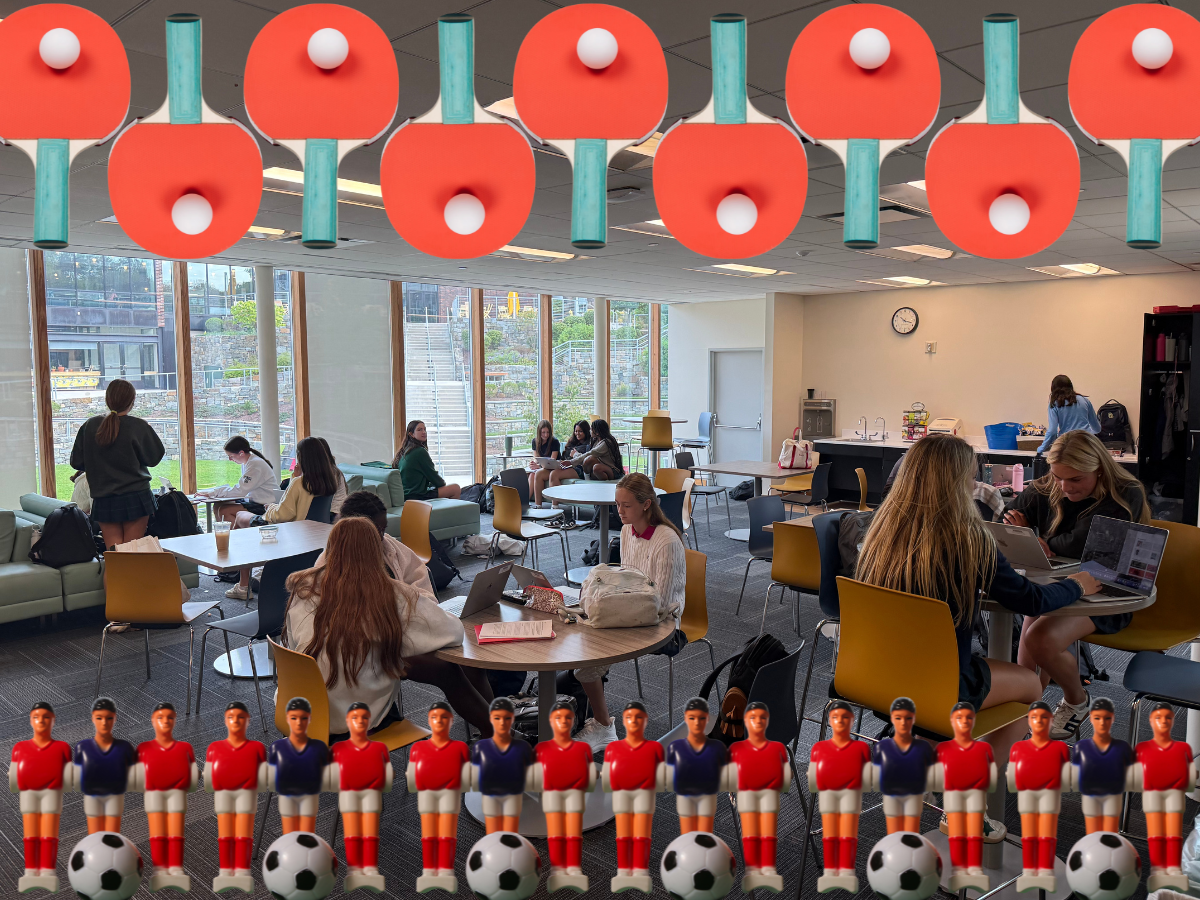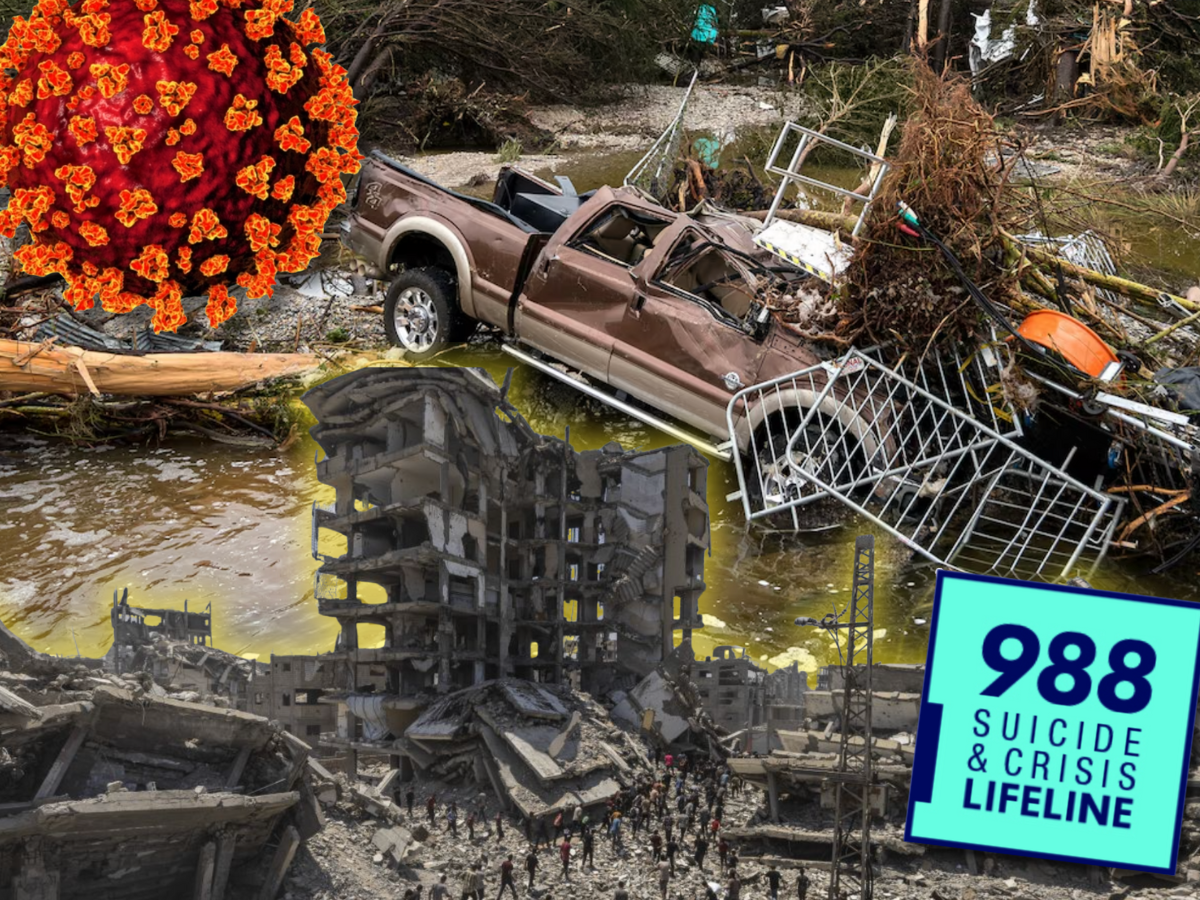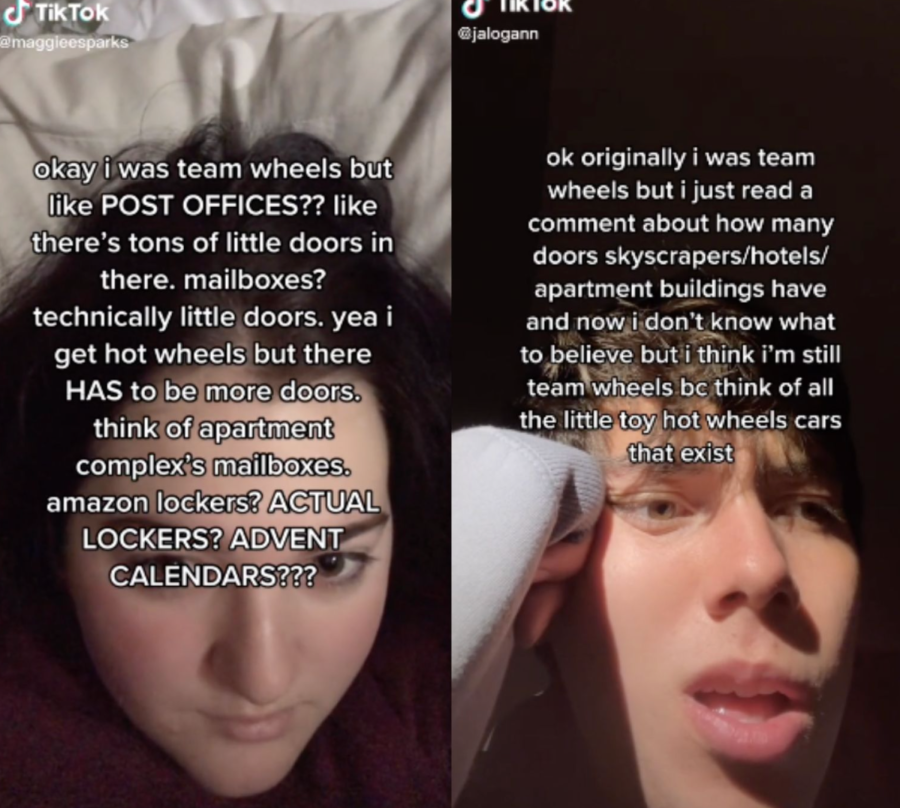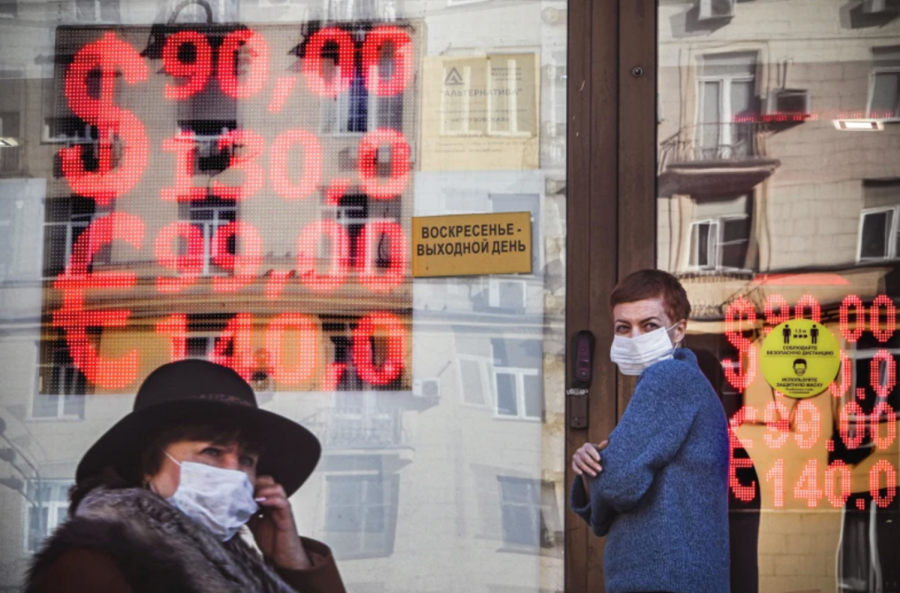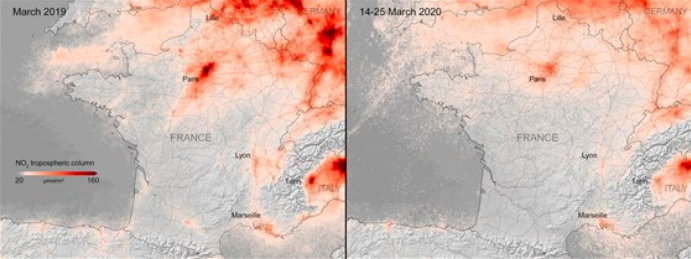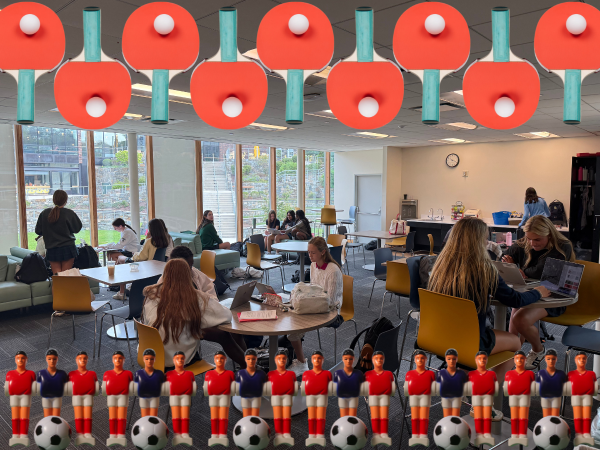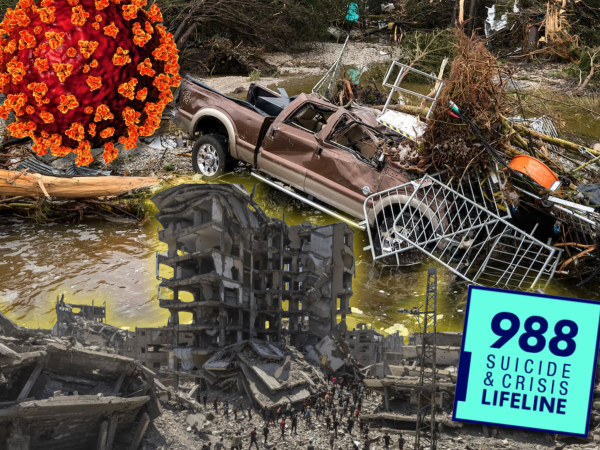The Truth: Quarantine’s Impact on the Environment
Ella Schoonmaker ‘23, Staff Writer
Over these past few weeks, posts stating that “Corona is the cure” and “Humans are the disease” have circulated in social media relating to the impact of human quarantining on the environment. While there is some truth in these accusations, the idea that the quarantine has had a significant, long-term, positive effect on the environment is, unfortunately, a misconception.
Recently, the decrease in transportation, manufacturing, and commerce across the planet has resulted in dramatically lower levels of Nitrogen Dioxide (NO2), an air pollutant, in the atmosphere, as shown through satellite measurements of the gas presence before and during the COVID-19 pandemic. This has led to a dramatic improvement of air quality in just a few weeks. In large cities, such as Los Angeles, Paris, and Shanghai, residents have noted visible changes, such as cleaner air and clearer skies.
(Left image shows NO2 emissions in and around France in March 2019. Right image shows NO2 emissions in and around France in March 2020, source: Johns Hopkins Magazine)
Decreased use of coal and oil has also led to less Carbon Dioxide (CO2) being produced. In China, CO2 emissions were down about 25% during the two weeks following Lunar New Year. It is clear that the drastic measures being taken to limit human activity during the COVID-19 crisis have had some immediate benefits to the environment.
However, whether these benefits will have any lasting impact is in question. As Li Shuo, senior climate and energy policy officer at Greenpeace in Beijing stated, we shouldn’t “pop the champagne corks” quite yet.
Troubling news includes reports of an increase in illegal deforestation and hunting, such as in Brazil and Kenya, as many park rangers and environmental protection workers have been required to stay home. This situation is exacerbated by the rise in unemployment, which has forced people to turn to other means of earning income. Additionally, with many transportation systems halted, agricultural producers have been unable to distribute their products. This has led to an increased amount of organic waste and, consequently, greenhouse gas Methane (CH4), which is produced during decomposition.
Equally concerning, progress made in reducing air pollution might be erased if countries become more lenient with environmental regulations after the pandemic. In an attempt to restore their economies, some countries have already “loosened up.”
In the U.S, for example, the Trump administration has relaxed some environmental regulations to help industries, such as allowing polluters to ignore environmental laws if they can claim that their violation is in some way a result of the pandemic. This decision, while aiding the U.S. economically, may come with a greater cost. Gina McCarthy, who led the Environmental Protection Agency under President Obama, described this decision as giving companies a “license to pollute.” If other countries follow, we may ultimately be taking a step backward environmentally.
What does this all mean? While a couple months of decreased air pollution won’t have a massive, lasting impact on the environment, there is a real possibility for long-term environmental improvement. This ultimately lies in how humans will respond after the pandemic.
Clear, beneficial, short-term effects of limiting human activity, such as the immense improvement of air quality, have been evident. Data collected during the pandemic must be recognized. Perhaps, after the pandemic, companies won’t require their employees to travel long distances for meetings that can be held through remote applications, such as Zoom. Or, possibly, people will continue spending more time outside biking and walking, rather than driving everywhere.
These past couple of months, humans have found ways to adapt to a new lifestyle. So, the question is, will we continue the habits we have learned during the quarantine, or will we revert to the way we acted before the quarantine? Will government leaders neglect environmental restrictions to boost their economies? And will we, ordinary citizens, compensate for all the time “lost” by traveling as much as possible? As a planet, we have the opportunity to enact real, long-term change. What will we decide to do?
Sources:
https://hub.jhu.edu/2020/04/15/peter-decarlo-air-quality-social-distancing/ (B)
https://unctad.org/en/pages/newsdetails.aspx?OriginalVersionID=2333 (C)

When not writing for GAP, Ella enjoys sleeping, playing squash, and working at a boba tea shop (where she struggles to not sample the product).





